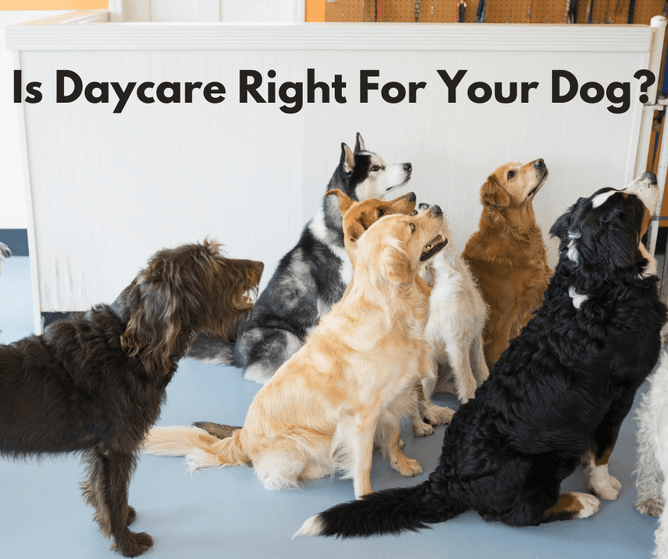Is Daycare Right For Your Dog?
Do you ever feel guilty about leaving your dog at home while you go to work all day? Do you worry that they may be feeling sad, lonely or bored?
Maybe daycare is an option for them.
Maybe, and maybe not.
First, if you aren’t sure what your dog does when you leave them home alone, get some cameras up and start monitoring what your dog does all day.
This will help you find out if you dog is bored, has separation struggles, or if they just sleep and relax all day.
Sometimes, daycare can be very helpful for dogs that:
·Have separation struggles and need to be with people or other dogs until ready to be left at home alone.
Like/love interacting with other dogs and people
Are part of a group of dogs at home and need to have the ability to interact independently with other dogs while the dog/s at home learn to be calm at home alone.
Interacting in a large group of dogs all day isn’t normal for most dogs. They may become overwhelmed, stressed, tired and not have time to relax and be calm. Daycare may physically tire your dog out, but it’s also mentally tiring. Playing and interacting all day is hard.
Daycare is not the place to socialise your dog if they are fearful/worried by other dogs. It is better to work one on one with a qualified trainer to address those issues.
There may be some dogs that benefit greatly from spending time at a daycare with a structured program. They can learn appropriate interactions with other dogs and skills to help at home, with appropriate guidance.
If you are considering daycare for your dog, ask the prospective daycare:
What qualifications do your staff have?
Do you follow a modern, science based approach to dog training and behaviour?
Do you have a structured program including sleep/rest time throughout the day?
Does the quiet time involve individual crate/separate time?
Do your staff know how to read and interpret dog body language?
How do they assess new dogs applying for the facility?
How many dogs to staff ratio?
What do you do if my dog does the ‘wrong’ thing?
Do you include training and skills in the dog’s day? If so, what methods of training do you use?
In our experience where daycare can go wrong with some dogs and some daycares is:
The inability to be calm around other dogs as they may learn that all dogs are to play with. This in turn may lead to frustration and even reactivity.
For dogs that visit days cares many times per week, constantly high adrenalin levels can impact behaviour negatively.
Creating negative associations with people, other dogs, and environments due to the methods being used (e.g. spray bottles to interrupt behaviour).
If you decide to give daycare a go for your dog, you have found a suitable facility and you are happy with their approach, book in a trial and see how your dog goes. Ask the staff for a report and observe your dog when they get home and for a few days afterwards. Allow them time to decompress.
If you decide to take them back, see what they do when you get to the facility – pulling you to get in is a good sign! Are they happy to go with staff? What is their body language telling you?
Daycare can be great for some dogs, but don’t worry if your dog isn’t suited to it. They may prefer to spend time alone at home or do other activities, and that is absolutely fine!

